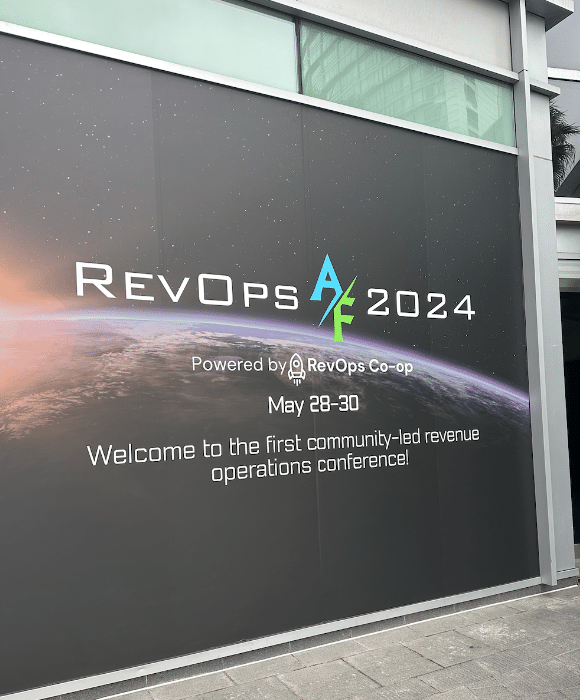There are at least three factors driving the need for RevOps leadership. According to experts at this year’s RevOpsAF 2024 event in San Diego, it’s change management, collaborative cross-functional teams, and sales productivity metrics.
You’ve likely heard about Revenue Operations. There has been a 300 percent increase in RevOps-related roles on LinkedIn and a 57 percent increase in companies that have adopted RevOps strategies since 2019.
Companies are adopting Revenue Operations (RevOps) because they prefer an integrated way to match sales, marketing, and customer support, which historically have operated separately.
The primary benefit of instituting RevOps as a branch of your organization is growth and increased profitability, which has more companies hopping on to the profit potential a RevOps business model and leadership can provide.
Forrester research that was shared at RevOpsAF 2024 shows RevOps increasing company profitability by 39 percent, a 33 percent improvement in revenue growth, customer retention improved by 32 percent, and the average deal size increased by 29 percent.
If you’ve considered implementing RevOps, experts at RevOpsAF 2024 highlighted three evidence-backed takeaways that every company should know about RevOps.
1. To navigate growing pains, change management is critical.
Implementing new technology is a transformative time for organizations, and nobody knows that better than your employees, whose work routine has changed along with new innovations.
Change management is an important part of successful Revenue Operations for at least three reasons.
- Better efficiency: New processes and technologies can be adopted quickly and efficiently, which can lead to faster time-to-market and better operational efficiency.
- Employee morale: When employees are involved in the change process and their concerns are addressed, they are more likely to be engaged and satisfied, which can lead to better results and customer experiences.
- Improved customer experiences: RevOps changes often directly impact customer interactions.
These initiatives are essential to building internal champions, ensuring stakeholders are informed and involved in decisions, and opening avenues for better communication among teams.
Linsay Miller, VP of RevOps at OneStream, emphasized to those attending her session at RevOpsAF 2024 that today’s RevOps can benefit from internal surveys shared among sales, marketing, finance, and product teams, which will provide quick, accurate, and invaluable insight and direction regarding new technology and processes.
2. Cross-functional collaboration is at the heart of all RevOps teams.
Because Go-to-Market strategies launch faster when teams are aligned, the agile, cross-functional model of RevOps appeals to companies. “RevOps is the centerpoint of sales, marketing, and product, making it possible to deliver on promises made to execs and the board,” said Manny Medina, a featured speaker and CEO of Outreach.
While RevOps institutes better collaboration, cross-functionality, and visibility among teams, Medina cautioned that spreadsheets can be brutal to collaborate on because they don’t provide a single source of real-time data that can be easily shared among teams.
An automated platform can help RevOps navigate the different approaches each team takes toward achieving a common goal and enable teams to proactively model future scenarios collaboratively.
3. Driving sales productivity is a strategic metric.
“Don’t predict success purely off of quota attainment,” warned speaker Werner Schmidt, CEO and cofounder of Lative. “Sales productivity is a much better indicator of how likely you are to hit revenue targets.
Why track sales productivity as a metric? According to Schmidt, there are at least three reasons:
- Understanding sales productivity enables a shift from reporting on what happened to proactively understanding what is going on and how to stay on top of it.
- It’s important to set quotas based on sales performance as it promotes realistic, motivating targets and helps address high turnover from unmet quotas, which stresses financials and operations.
- Realistic targets prevent planning disruptions and maintain morale.
Bad quotas (and territories) lead to high rep attrition! Don’t lose your best reps over poor planning.
Fullcast is here to help. Our territory-based routing software automatically routes leads, accounts, cases, and more in alignment with your GTM Plan.
Ryan and Celena are here to help you! Book a free, no-obligation demo today!













